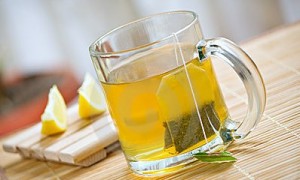 There are many different types of tea, but are they all really teas? And what’s the big deal about them? Purists consider true tea to be green tea, black tea, white tea, oolong tea, and pu-erh tea. These teas are derived from the Camellia sinensis plant, which is native to China and India. This plant, and tea, contains many flavonoid antioxidants. The most prominent antioxidant is epigallocatechin gallate (ECGC), which helps fight free radicals that can contribute to cancer, heart disease, and clogged arteries.
There are many different types of tea, but are they all really teas? And what’s the big deal about them? Purists consider true tea to be green tea, black tea, white tea, oolong tea, and pu-erh tea. These teas are derived from the Camellia sinensis plant, which is native to China and India. This plant, and tea, contains many flavonoid antioxidants. The most prominent antioxidant is epigallocatechin gallate (ECGC), which helps fight free radicals that can contribute to cancer, heart disease, and clogged arteries.
Various studies have shown that all varieties of tea can posses a wide array of health benefits. On top of aiding against cancer, heart disease, and clogged arteries, other health benefits include helping prevent diabetes, encourage weight loss, lower cholesterol, increase mental cognizance, and contain antimicrobial properties.
Details About Each Type of Tea
Green Tea: Green tea is made with steamed tea leaves, so they have higher polyphenol and antioxidant levels than black and oolong teas that contain fermented/ oxidized tea leaves. The high concentration of antioxidants in green tea may prevent growth of bladder, breast, lung, stomach, pancreatic, and colorectal cancers; prevent clogging of the arteries, burn fat, counteract oxidative stress on the brain, reduce risk of neurological disorders like Alzheimer’s and Parkinson’s diseases, reduce risk of stroke, and improve cholesterol levels.
Black Tea: Black tea is made with fermented tea leaves and has the highest caffeine content of all teas. Some studies have suggested that black tea may protect lungs from damages caused by cigarette smoke exposure. It may also reduce the risk of stroke.
Pu-erh Tea: Like black tea, pu-erh tea is also made from fermented and aged tea leaves. Not many studies have been done on humans, but in one animal study, it was shown that animals given pu-erh tea had less weight gain and reduced LDL cholesterol.
White Tea: These tea leaves are the youngest tea leaves and picked the earliest. They are not cured, nor are they fermented. Compared to more processed teas, white tea may have the strongest anti-cancer properties.
Oolong Tea: In an animal study, subjects given oolong tea had lower LDL cholesterol levels.
Herbal Tea: Most of the time, herbal teas aren’t even teas at all, as they don’t use the tea leaves from the Camellia sinensis plant. Herbal teas are typically made up of dried roots, flowers, spices, and other herbs.
Try some of our favorite teas!
- Have a tummy ache? Try some peppermint tea. Look for a brand where the only ingredients are peppermint leaves – that’s all you need!
- Like Patty’s Fountain of Youth Water? Use the same recipe, but use half or all iced green tea in place of water. You’ll get even more antioxidants, plus a little boost of caffeine.
- Love chai lattes from coffee houses? Make your own at home for hardly any calories! Use a tea bag of chai tea (it will have black tea and spices), and add some unsweetened almond milk and, if needed, a little stevia, honey, or agave. Want it a little extra spicy? Add extra cinnamon, nutmeg, or pumpkin pie spice for a little extra fall flavor.
- Make your own homemade berry white tea. Brew a basic white tea, let it cool, and instead of ice cubes, use frozen berries. The ice will keep the tea cold, add a little flavor, and you have a tiny little snack when you finish your glass!
Any of these teas are fun, delicious, low-calorie ways to flavor your hydration. Try swapping morning coffee for green tea, or have a simple mug of herbal tea to wind down before bed. Just be careful of extreme tea consumption, though! For one, if you’re buying bottled teas, make sure they’re unsweetened, or just a tad sweet, like the Honest Teas are. Many of the commercially bottled teas are loaded with excess added sugars and artificial sweeteners that aren’t the best thing for you. Additionally, if you’re drinking tea at every meal and in between meals, it could affect your iron levels. Tea has tannins, and these tannins can hinder iron absorption in your body. So, as with all things, enjoy in moderation!
[highlight]Enjoy this post? Please share with your friends and family![/highlight]
[pinterest count=”horizontal” float=”left”]
